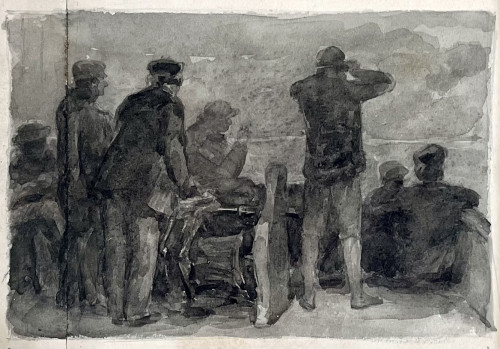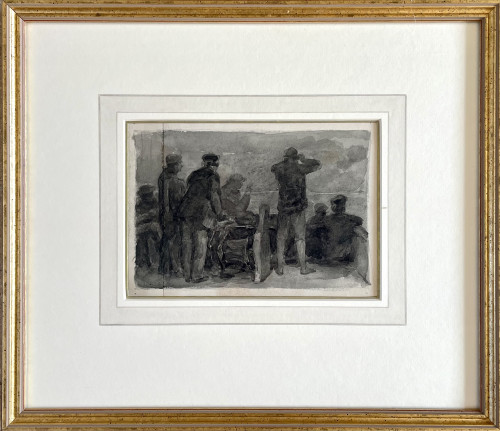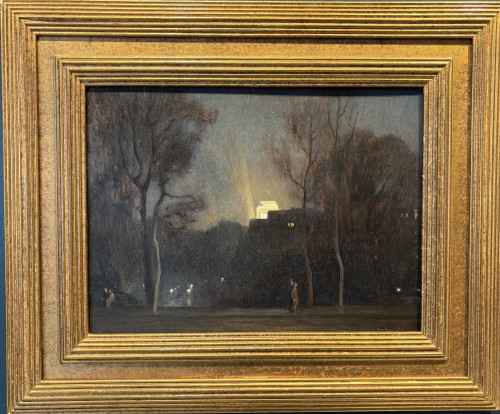- HOME
-
- View All Items
- New Arrivals
- Featured Items
- Artists
-
- View All
- Contemporary
- Birmingham School
- Cotswold Group
- Landscape
- Urban Townscape
- Abstract
- Animals/Birds
- Arts & Crafts
- British Impressionist
- Botanical
- Design/Industrial
- Fantasy/Fairy Subjects
- Female Artists
- Figurative
- Historical
- Illustration/Cartoon
- Marine
- Military/War Artist
- Modern British
- Pre-raphaelite/ Romantic/ Aesthetic
- Nude
- Portrait
- Prints
- Scottish
- Sculpture
- Sporting
- Still Life
- Theatrical
- Interiors/Architectural
-
ARCHIVE
Genre
- View All
- Contemporary
- Birmingham School
- Cotswold Group
- Landscape
- Urban Townscape
- Abstract
- Animals/Birds
- Arts & Crafts
- British Impressionist
- Botanical
- Design/Industrial
- Fantasy/Fairy Subjects
- Female Artists
- Figurative
- Historical
- Illustration/Cartoon
- Marine
- Military/War Artist
- Modern British
- Pre-raphaelite/ Romantic/ Aesthetic
- Nude
- Portrait
- Prints
- Scottish
- Sculpture
- Sporting
- Still Life
- Theatrical
- Interiors/Architectural
- ARTISTS
- Online Exhibitions
- Events
- About
- Contact
- Home
- Genre
- Military/War Artist
- General Gordon
General Gordon
General Gordon
Hamo Thornycroft was born in London, the son of the sculptors Thomas and Mary Thornycroft and grandson of the sculptor John Francis Thornycroft. He initially trained with his parents before entering the Royal Academy Schools where he won the Gold Medal in 1876. His early works was classical in style but he soon became a leading member of the New Sculpture movement, taking British Sculpture from neo-classicism to the academic styles of the late 19th century and towards modernism. In the 1880 and 1890s he created a series of statues in these more naturalistic themes which famously included The Mower (1884 plaster, 1894 bronze). He was one of the youngest artists to be elected tot the Royal Academy in 1882, the same year his bronze cast of Teucer was purchased for the nation by the Chantrey Bequest. With his reputation secure he received many commissions for major monuments, one of the most important of these being that of General Charles Gordon. A member of the Royal Academy he also taught regularly at the Royal Academy Schools. He was a founder member of the Art Worker’s Guild and was knighted in 1917. Major-General Charles George Gordon (1833-1885), also known as Chinese Gordon, Gordon Pasha and Gordon of Khartoum, was a British army officer and administrator. He had secured his military reputation in China where he was instrumental in putting down the Taiping Rebellion. He later became Governor-General of the Sudan. At the outbreak of a serious revolt led by the Mahdi, Muhammad Ahmad, Gordon led and expedition to arrange the evacuation of about 2,500 British civilians from Khartoum. After the civilians were sent into safety he and a small group of soldiers were trapped when the forces of the Mahdi besieged in the city. His defence of the Khartoum lasted almost a year, but two days before relief arrived the city fell and Gordon was killed. News of his death led to an unprecedented wave of public grief across Britain. Thornycroft’s monumental bronze Gordon Memorial was commissioned in 1885 and erected in Trafalgar Square in 1888. It now stands on the Victoria Embankment, London. The present small version of the statue is one of a number published by Arthur Leslie Collie under contract from Thornycroft in 1889.
Dimensions:
Thank you for your enquiry.
We will get back to you soon.
Please create wishlist to add this item to
RELATED ITEMS

















